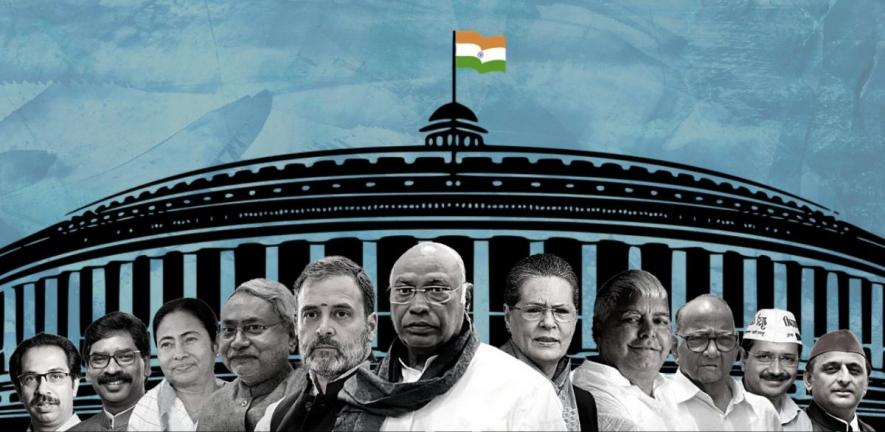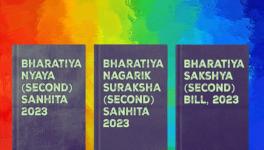I.N.D.I.A. needs Karachi 2.0

THE Karachi Resolution of 1931 is one of the biggest milestones of India’s struggle for independence from the British.
It allowed the Indian National Congress to combat the All-India Muslim League’s vituperative communalism by showcasing to the people of India a visionary document that spoke of nationalisation of key industries and mineral wealth, fundamental rights, equality before the law, neutrality of the State in regard to all religions, protection of minorities and universal adult suffrage.
It included labour rights such as a living wage, healthy work conditions, limited hours of work, and protection against economic consequences of old age, sickness and unemployment.
The Muslim League did not have a document or declaration right up to the Partition that could match the Karachi Resolution in either content or vision. On the contrary, only the tempo of the league’s communal demands kept on increasing, culminating in the Lahore Resolution, 1940, which demanded a separate nation of Pakistan.
After failing on all fronts, Hindu communalism under the RSS–BJP is pulling no punches in dividing the people of India in the name of religion.
Something similar is unfolding in India today. After failing on all fronts, Hindu communalism under the Rashtriya Swayamsevak Sangh and the Bharatiya Janata Party (RSS–BJP) is pulling no punches in dividing the people of India in the name of religion.
The manner in which Ramesh Bidhuri, member of Parliament (MP) from the South Delhi seat, was left scot-free by the speaker of Lok Sabha for his venomous rant against fellow MP K. Danish Ali of the Bahujan Samaj Party (BSP) and the way ex-Union health minister and ex-Union law minister tittered while being seated behind the bile-spewing Bidhuri are ominous signs for all secular and peace-loving Indians.
BJP’s desperation in the historical context
It is clear that in 2024, the RSS–BJP would just go to any extent to win elections, and the biggest casualty of their unrelenting communal campaign would be the Muslims.
In order to avert this, the Indian National Development Inclusive Alliance (I.N.D.I.A.) needs to be on a war footing similar to the fight against British colonialism.
Communalism in power is as dangerous as colonialism, albeit with a slight difference. Under colonialism, it is a foreign ‘people’ who cause the schism and thus are easily identifiable whereas under a communal regime it is some folks from within who constitute ‘we the people’, that cause division and disunity.
As a result, they are not easily recognisable and succeed in passing off their brand of communalism for nationalism. The RSS–BJP has mastered the latter art.
The Karachi Resolution had as its background a series of three events: Firstly, the Poorna Swaraj (Complete Independence) Resolution of 1930 that spoke of complete freedom from British colonialism found its philosophic and programmatic echo in the Karachi Resolution.
In other words, the question of what swaraj (self-rule) would look like was answered at Karachi.
Secondly, the corpses of left-wing revolutionaries such as Bhagat Singh, Sukhdev and Rajguru served as compelling factors for the Congress to offer a radical programme to the restless youth, workers and peasants of India.
Thirdly, the rise of a left-wing within the Congress, especially the radicalisation of Jawaharlal Nehru and his younger comrades including Subhas Chandra Bose, was a huge contributing factor.
Tej Bahadur Sapru hit the mark when he declared that the Karachi Resolution was a “heavy price paid (by Gandhiji) for the allegiance of Jawaharlal.”
The young Nehru during his tour of the Soviet Union and Europe had seen for himself that in order to take on the colonial beast, promulgation of a reinvigorated socio-economic program was needed to incite the masses to fight the foreign power in hope for a bright future.
I.N.D.I.A. needs a new imagination
Today, I.N.D.I.A. needs to pass a resolution, for the sake of India, that is Bharat, on complete freedom from communal politics and communalism of all shades. It is necessary for three reasons.
The generation that is growing up in these dark times would be victims of ‘communal common-sense’. To them, religious schism in society would be a self-evident reality instead of it being an artificial political construct foisted upon them.
Firstly, the corpse of Indian secularism has been left to rot by the RSS–BJP and their acolytes. Before they cremate it in 2024, it is necessary to put life back into it.
Secondly, the generation that is growing up in these dark times would be victims of ‘communal common-sense’. To them, religious schism in society would be a self-evident reality instead of it being an artificial political construct foisted upon them.
Thirdly, if Hindutva wins again, all forms of dissent would cease to exist. The fate of religious minorities, especially Muslims, would be so uncertain that, if not statutorily, but for all practical purposes, they would become second-class citizens.
Just like Nehru and comrades had done at Karachi, I.N.D.I.A. must offer something similar to the toiling masses of India. A universal healthcare system financed through corporate taxation could be one such crucial component.
The Indian middle-classes would also be a great benefactor of this policy since they are only one major disease away from falling into the throes of poverty. The Covid carnage stands testimony to this. Other protective promises such as a revised and respectable floor wage, an end to contractual jobs in the public sector, right and fair price to farmers for their products, classification of Anganwadi workers as ‘teachers’; are some policy measures that could constitute Karachi 2.0.
Apart from these welfarist and re-distributive measures, the need for I.N.D.I.A. is to offer a complete ‘detoxification’ plan in order to purge the poison of hate that has accumulated deep into the tissues of Indian democracy’s body politic.
A concerted attempt must be made to instil confidence among the religious minorities, especially Muslims. Citizenship Amendment Act, 2019–National Register of Citizens–National Population Register should be immediately rolled back and all lingering issues regarding migration into Eastern India must be immediately resolved in a manner that does not provide fodder to the RSS–BJP in the future.
Urdu language and script must be taught in schools at par with Hindi, at least in the states of North India. The unfamiliarity with the Urdu script and language, a language born in the barracks of old Delhi, is a matter of shame.
A personal anecdote might suffice here, if I am allowed the indulgence. A deeply secular person like me was subject to a cultural shock when at my previous university in Delhi (2014), I saw a Hindu Pakistani friend carrying a Hanuman Chalisa composed in the Urdu script! The fact that the script first appeared ‘Muslim’ to me and then as a language clearly shows how biased and disoriented the views of my generation have become.
For my grandfather’s generation, Urdu was not a ‘Muslim’ language. He was proficient in Urdu as well as Hindi (Devnagri script). Isn’t it a matter of shame for our generation that most of us cannot not read and relish the works of geniuses like Mir Taqi Mir and Mirza Ghalib in their original form?
Along with this all draconian laws and actions such as the 2019 amendment to the Unlawful Activities Prevention Act (UAPA), the snatching of the statehood of Jammu and Kashmir, and the suspension of Article 370 must be reversed.
It has been almost a century since the Karachi resolution was passed. It challenged minority communalism then, Karachi 2.0 can finish its majoritarian counterpart now.
Similarly, the attempt by the government to give a new and fortified meaning to sedition by bringing in the dubious Bharatiya Nyaya Sanhita Bill, 2023 should be opposed.
I.N.D.I.A. should make a pledge that all attempts at creating a nationalist/patriot and seditionist binary would cease to exist in future. In places such as Manipur, a Truth and Reconciliation Commission must be created to soothe the wounds of inter-communal strife that was promoted and fomented by the RSS–BJP government at both the state and Union levels.
It has been almost a century since the Karachi Resolution was passed. It challenged minority communalism then, Karachi 2.0 can finish its majoritarian counterpart now.
Get the latest reports & analysis with people's perspective on Protests, movements & deep analytical videos, discussions of the current affairs in your Telegram app. Subscribe to NewsClick's Telegram channel & get Real-Time updates on stories, as they get published on our website.
























